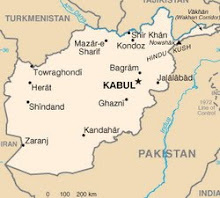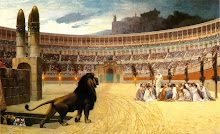.jpg) An organization that reaches out to persecuted Christians worldwide, International Christian Concern, says a new Egyptian court ruling allowing 12 Christians who converted to Islam to return to Christianity actually isn't religious freedom, and will place them in grave danger.The Washington-based human rights group said the recent ruling followed another in which the judge concluded that no one – ever – is allowed to leave Islam.The difference between the two cases is that the single man seeking to have his national identity card in Egypt reflect that he is a Christian was born a Muslim, while the more recent case, affecting 12 people, involved individuals who were Christian, turned to Islam, and then sought permission to return to Christianity.On its surface, the ICC said, the ruling appears generous and beneficent. "The ruling enables the Christian identity of the 12 converts to be indicated on their government-issued identity cards," the organization noted. They had been "fighting for their re-conversion to be recognized by the Egyptian government" and now it has. "Egypt's highest civil court has broken from Islamic tradition and official permitted someone to convert to some other religion than Islam," ICC noted.However, the "victory" is only partial, and, in fact, "may indeed end up harming more than it helps," the organization said. "The reason the court recognized these 12 conversions is because they had been Christians before they were Muslims.This does not help Muslim-born Egyptians who convert to Christianity," ICC said.The group noted the only Muslim-born convert to Christianity to seek Egyption permission to be listed with his Christian identity, Mohammed Hegazy, has been rejected by Egyptian courts.In that recent decision, Judge Muhammad Husseini said it violates the law for a Muslim to leave Islam.The report said Husseini cited Article II of the Egyptian constitution, making Islamic religious law the "source" of Egyptian secular law, as the basis for his conclusion.Since Islam is the "final" and "most complete" religion, Muslims already have full freedom of religion and are not allowed to return to the "less complete" Christianity or Judaism, the ruling said."Freedom of religion doesn't mean getting in and out of Islam to another religion, but only means that each person is free to practice his own religious rites, and not playing games with Islam or contradicting sharia law," the website said the judge concluded.International Christian Concern noted that Hegazy now lives in hiding because of the many death threats from Muslims who consider him apostate, which under Islamic law results in the death penalty.
An organization that reaches out to persecuted Christians worldwide, International Christian Concern, says a new Egyptian court ruling allowing 12 Christians who converted to Islam to return to Christianity actually isn't religious freedom, and will place them in grave danger.The Washington-based human rights group said the recent ruling followed another in which the judge concluded that no one – ever – is allowed to leave Islam.The difference between the two cases is that the single man seeking to have his national identity card in Egypt reflect that he is a Christian was born a Muslim, while the more recent case, affecting 12 people, involved individuals who were Christian, turned to Islam, and then sought permission to return to Christianity.On its surface, the ICC said, the ruling appears generous and beneficent. "The ruling enables the Christian identity of the 12 converts to be indicated on their government-issued identity cards," the organization noted. They had been "fighting for their re-conversion to be recognized by the Egyptian government" and now it has. "Egypt's highest civil court has broken from Islamic tradition and official permitted someone to convert to some other religion than Islam," ICC noted.However, the "victory" is only partial, and, in fact, "may indeed end up harming more than it helps," the organization said. "The reason the court recognized these 12 conversions is because they had been Christians before they were Muslims.This does not help Muslim-born Egyptians who convert to Christianity," ICC said.The group noted the only Muslim-born convert to Christianity to seek Egyption permission to be listed with his Christian identity, Mohammed Hegazy, has been rejected by Egyptian courts.In that recent decision, Judge Muhammad Husseini said it violates the law for a Muslim to leave Islam.The report said Husseini cited Article II of the Egyptian constitution, making Islamic religious law the "source" of Egyptian secular law, as the basis for his conclusion.Since Islam is the "final" and "most complete" religion, Muslims already have full freedom of religion and are not allowed to return to the "less complete" Christianity or Judaism, the ruling said."Freedom of religion doesn't mean getting in and out of Islam to another religion, but only means that each person is free to practice his own religious rites, and not playing games with Islam or contradicting sharia law," the website said the judge concluded.International Christian Concern noted that Hegazy now lives in hiding because of the many death threats from Muslims who consider him apostate, which under Islamic law results in the death penalty."Most Muslim-background Christians face such intense persecution that they do not even ask for official recognition of their Christianity for fear of discrimination and persecution from the government and from Muslims," the ICC said.In the cases involving the 12 actually given permission to be listed, again, as Christian, the danger is just beginning, according to Magdi Khalil, director of the Middle East Freedom Forum.Since the judge also ordered those Christians to display their "previous Muslim identity" on their national ID cards, the decision creates a high level of danger, Khalil said.When extremists see their IDs, the Christians could be subject to discrimination or even killed, since they are considered apostates, Khalil explained.The court ruling also failed to reference a religious freedom clause in the Egyptian Constitution, and that means the judge effectively kept the ruling from being used as a precedent in religious freedom disputes."Freedom of religion should allow Egyptians the right to convert to any religion, any time, without restriction," Khalil told ICC.Khalil, however, noted that under current circumstances in Egypt, Christian girls are forced to convert when they are ordered to marry Muslim men, while other Christians are offered employment if they convert to Islam.Darara Gubo, the regional manager for Africa under the ICC program, agreed."Egyptian authorities should not interfere with the right of citizens to choose the religion they want to follow. Rather, they have an obligation to protect citizens who choose to convert to Christianity and to recognize those conversions without any restrictions," Gubo said. "The international community should step up pressure on Egypt to provide real religious freedom."ICC delivers humanitarian help, trains and supports persecuted pastors, raises awareness of persecution, and is an advocate for the persecuted on Capitol Hill.WND previously has reported on a ruling from a U.S. federal court that an Egyptian Christian who had fled his home nation "most assuredly has a right not to be tortured." The ruling allowed the Egyptian Christian to remain in the United States.The court pointedly concluded that "diplomatic assurances" of his religious rights "by a country known to have engaged in torture" weren't reassuring.A report from the Coalition for the Defense of Human Rights concluded Coptic Christians in Egypt have been harassed, tortured and killed by Muslims for 1,400 years."They have been subjected to all kinds of hate crimes including, the abduction of young Coptic girls, the killing of Coptic women and children and the destruction of their places of worship," the report said.The United States Commission on International Religious Freedom, an agency created by Congress, also lists Egypt on its watch list of countries, noting it had "a poor overall human rights record."In addition, Egyptian authorities have threatened two young boys who were ordered to take training to be Muslims, but refused, stating they are Christian.
As in the days of Noah...

























.bmp)
No comments:
Post a Comment